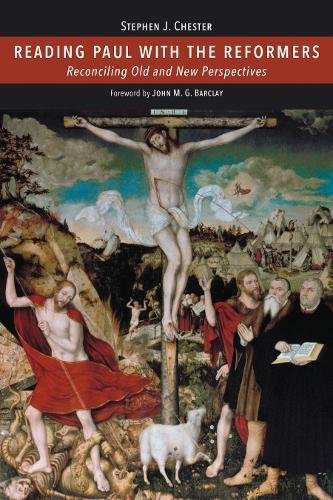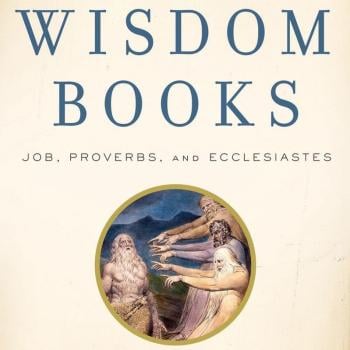Ben. It seems clear at least to me that when Calvin says our sin was imputed to Christ and his righteousness was imputed to us, based on a (mis)reading of 2 Corinthians 5, and when he also talks about us putting on the robe of Christ’s righteouseness, that he is saying something Paul himself is not saying. Early Jews didn’t talk about imputed righteousness, they talked about actual righteousness. When Dan. 12.1-3 speaks about the righteous getting the good resurrection it means those who are morally righteous, and when Jesus says the same thing in John 5 he does not mean something different from that. Yes, Calvin also talks about sanctification through union with Christ, but it is precisely the reconfiguring of what dikaiosune actually means that causes problems for the Reformers when they try to figure out the relationship between what they call justification and sanctification. The NPP member who seems to misunderstand Calvin’s attempt at a balanced approach to justification and sanctification the most is Campbell. Would you agree. Comments?
Stephen. As I explained in the last answer, imputation is a term that changes meaning in important ways over time, and that evolution and the confusion it causes means that I would not be opposed simply to retiring the term. Nevertheless, the question would remain of whether what the Reformers meant by imputation accurately reflects Paul’s teaching. I think that it does, and as was also discussed in the last answer, this is not for the Reformers a matter of fictional righteousness vs. actual righteousness, for the believer is in Christ and Christ’s righteousness is both real and transforming. I am going to discuss the meaning of Paul’s righteousness vocabulary more generally in my next answer, but for now I simply want to note that precisely because they are well aware that the noun dikaiosune often refers to just and righteous character the Reformers think that in many texts Paul uses it to refer not to justifying righteousness granted apart from works but to the obedient behavior that emerges from justification. Luther tends to think of such obedient behavior as encompassed within justification (but in no sense an efficient cause of it), whereas Calvin distinguishes between justification and sanctification as twin saving benefits received together in union with Christ. They are different from each other here, but I don’t think that either Luther or Calvin (or any other early Protestant interpreters I read) had an exegetical difficulty in dealing with the noun dikaiosune. They are perfectly capable of acknowledging its semantic range and distinguishing between different uses by Paul in different contexts.
I have benefitted greatly from Doug Campbell’s work, but I do think that his division of the history of Pauline interpretation into what he calls “Justification Theory” that embodies error and competing non-contractual apocalyptic readings like his own is ultimately unhelpful. It forces interpreters from previous centuries into paradigms alien to their own work and context, and so it is not surprising that Calvin and others seem simply inconsistent when approached from Doug’s perspective. They just are not going to fit neatly into one side or the other of the divide that Doug has constructed.















